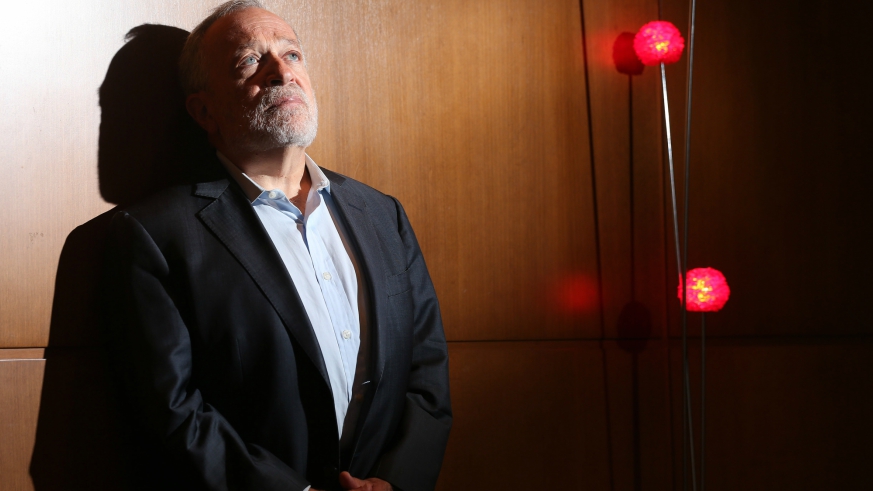In such politically divisive times, Robert Reich believes America still has a chance find some common ground. While the acclaimed writer and former secretary of labor under President Bill Clinton believes we’ve lost a sense of the common good in the age of Donald Trump, he still has hope for the future. Ahead of his trip to Cambridge this weekend in support of his new book, “The Common Good,” we caught up with the former Harvard professor and one-time Massachusetts gubernatorial candidate to talk about bridging the gap between today’s political factions, overcoming cynicism and more.
Why did you feel the need to write about America’s loss of the common good?
One of the biggest characteristics of the age we’re in is the absence of any concept of the common good. Certainly, the biggest contrast between America of the period between, say, 1932 and 1980 versus what’s happened since then, is the disintegration of what might be understood as the common good. And Donald Trump is the embodiment of that disintegration. Everything he does and says is the antithesis of the common good, but he’s not the cause of the decline.
You said in a recent interview that Trump is “the essence of the problem,” but not necessarily the cause of this erosion in the common good. Has the president just served as a distraction from the real issues facing Americans today?
Absolutely. His almost daily antics and outrages are obsessing America at a time when we ought to be focusing on the largest challenges, such as the proliferation of nuclear warheads and fissile material, the decline or destruction of the world’s environment, widening inequality of income, wealth and political power, and the undermining of our democracy. Trump is certainly contributing to all of this in his own way, but we need to understand that the common good and a renewed sense of public morality is the best way of responding to these challenges and, indeed, the best way of responding to Trump.
Considering the huge wealth gap in this country, is focusing on a common economic agenda the key to bridging the divide between both sides?
Yes. The economic disparities have kind of grown into a chasm. Since the late 1970s, most people have not had a raise if you adjust for inflation. In fact, most families have been on a downward escalator, even though the economy as a whole has continued to expand. Most of the gains have gone to the wealthy, and with those gains have come a lot of political power to rig the game in their favor. The election of 2016 was a watershed in this respect because both Donald Trump and Bernie Sanders, the most improbable candidates you could imagine, emphasized the rigging of the game and really rode a populist wave. I think Trump did it much more cynically, obviously, because once in office, he continued to pander to the rich and his wealthy friends, lobbyists, Wall Street and so forth. But nobody looking at America in recent decades of American history can mistake what has happened and why it’s important for the Democrats, if they want to get back the votes, to advance what might be called democratic populism.
Let me also see that racism continues to play a role. America has had racism, xenophobia, sexism since its founding. What’s new is that mostly Republicans have used race as a, race and also xenophobia, as a way to take advantage of the anger and suspicion that so many Americans have in an environment which they aren’t getting ahead.
A lot of places, including Boston, seem to be bending over backwards to lure big corporations like Amazon to their cities. Do you see any dangers in offering huge tax breaks to these giant companies?
It’s ludicrous. No new jobs are being created. The jobs are just moving around the country depending on which cities or states offer the biggest incentives. It’s a racket perpetuated by these corporations and it ought to be prohibited. One way of doing it is to have in the federal tax code a tax penalty imposed on companies that is directly proportional to subsidies they receive on taxes in states and cities so that, or is exactly the same dollar for dollar, so there is no advantage to engaging in these kinds of competitions.
In the face of so much political cynicism, are you hopeful at all for the future?
Cynicism is the great enemy of positive social change. When too many people become cynical about the possibility of change, the impossibility becomes a self-fulfilling prophecy and the special interests end up running everything. But if you look at American history, you see great cycles. A lot of people at the end of the 19th century were cynical about the possibility of change because great fortunes were in the hands of very few giant corporations and robber barrons. Much of the middle class had been hollowed out, the working class was heading on a very steep downward trajectory. The poor were in a terrible plight. Our politics were terribly corrupted by money and there were very dangerous working conditions. Consumers were being poisoned by impure foods and drugs. A lot of people were very cynical about the possibilities of change, but within a fairly very short time after that, we discovered the common good.
We as a nation rejected that future or that trend. We insisted on a better America for everyone. We reasserted equal political minds and equal opportunity and regulations against impure foods and drugs, a progressive incomes tax and a vote for women, that women fought very hard for. We launched the country. I think we’ll do the same. I think that’s the pattern in our history.



















